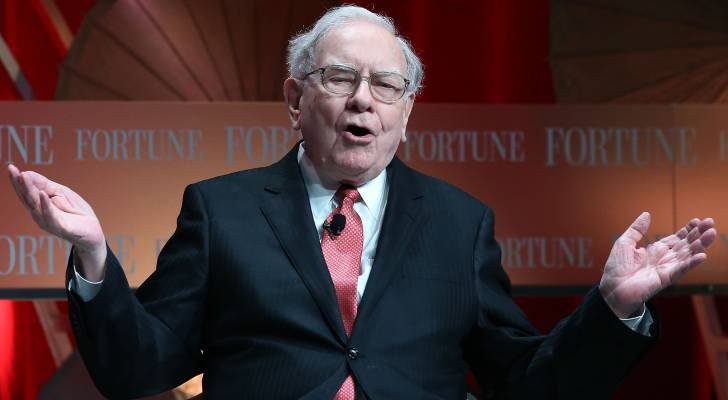With trade tensions rising, sweeping tariffs looming and recession fears rattling Wall Street, stocks have been on a wild ride. Watching a portfolio sink into the red can be nerve-wracking, but investing legend Warren Buffett has long warned against reacting emotionally when markets take a dive.
“Some people should not own stocks at all because they just get too upset with price fluctuations,” Buffett told CNBC’s Becky Quick. “If you’re going to do dumb things because a stock goes down, you shouldn’t own a stock at all.”
Quick pressed him: “What are dumb things? Selling a stock because it goes down?”
Buffett didn’t hesitate: “Yeah, selling a stock because it goes down. I mean, you know, if you buy your house at $20,000 and somebody comes along the next day and says, ‘I’ll pay you $15,000,’ you don’t sell it because the quote’s $15,000. You look at the house or whatever it may be. But some people are not actually emotionally or psychologically fit to own stocks.”
Buffett’s message rings especially true in today’s economic climate. With markets whipsawed by tariff uncertainty and broader economic jitters, knee-jerk reactions could turn temporary losses into permanent ones. Instead of treating stocks like lottery tickets, Buffett urges investors to think like business owners — focusing on long-term value rather than short-term noise.
After all, as he famously said during the 2008 financial crisis, “A simple rule dictates my buying: be fearful when others are greedy, and be greedy when others are fearful.”
And while not all assets are created equal, Buffett has shared a surprisingly simple way to tell which ones are worth owning — and which ones aren’t.
In a 2018 interview with Yahoo Finance, Buffett explained that there are two types of things people buy: one qualifies as a real investment — the other, not so much.
The test to tell the difference is simple: if trading were banned for a period of time, would the asset still hold up?
“If you buy something — a farm, an apartment house or an interest in a business — and look to the asset itself to determine whether you’ve done something, what the farm produces, what the business earns, and so on, you don’t really care whether the stock market’s open,” Buffett said. “You look at the investment itself to deliver the return to you.”

